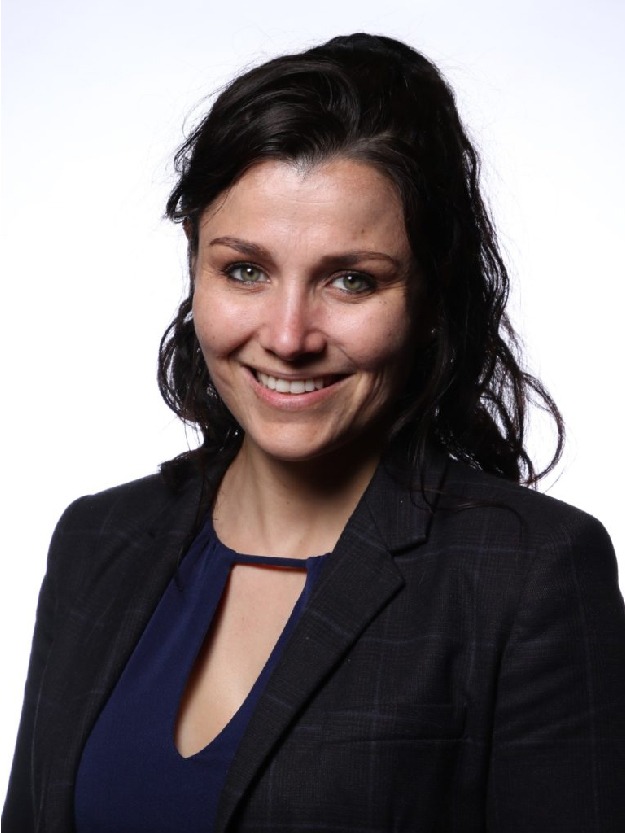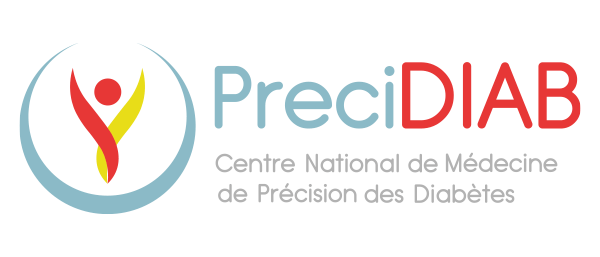Today, Doctor Amélie BONNEFOND tells us about her research projects within PreciDIAB and the central role of her LIGAN-PM platform in the development of precision medicine.

Dr. Amélie BONNEFOND
Research director at Inserm, scientific manager of the center’s diabetes genomic medicine programs, head of EquipEx LIGAN-PM and team leader at UMR 1283/8199
Can you tell us about your background and what led you to work in research, particularly in the field of genetics?
I did a preparatory class in Grenoble after the baccalaureate and then I joined an agronomy school in Montpellier. After the intellectual effervescence of the preparatory class, the agro training bored me greatly. I therefore decided to follow a master’s degree in Biology-Health at the same time as my school. The laboratory internships really pleased me and made me decide to pursue a thesis. The choice of genetics, on the other hand, was pure chance. For my thesis, I chose the laboratory above all rather than the theme of genetics. Indeed, I wanted to land in a dynamic and abundant laboratory, which perfectly characterized Philippe Froguel’s laboratory in Lille. So I decided to leave the south for the far north and embark on human genetics.
What are the major advances in precision medicine in recent years and what are the future prospects for the care of diabetic patients?
Genetics has become a flagship tool of precision medicine, the objective of which is to determine the etiological factors specific to each patient in order to deduce personalized and optimal care. In the context of diabetes, it is above all a question of avoiding the appearance of renal, ocular, cardiovascular and cancerous complications which can prove to be formidable. Today there are two major genetic approaches to this modern medicine; both being based on state-of-the-art, robust and robotized technology, which we have been able to develop for more than 10 years thanks in particular to our Equipment of Excellence (EquipEx) LIGAN.
The first approach is based on high-throughput sequencing and aims to identify rare and pathogenic mutations in genes involved in highly hereditary forms of diabetes, transmitted to each generation. Some of these genes are said to be actionable; in other words, when we find a pathogenic mutation in one of these genes in a diabetic patient, we can completely adapt and improve his management. For example, in a diabetic patient, if a pathogenic mutation is identified in the glucokinase gene (which was found to be involved in diabetes in 1992 by Philippe Froguel’s team), anti-diabetes treatments such as insulin or oral hypoglycemic drugs may be stopped. My work is largely focused on the effects of rare variants in the determinism of metabolic diseases such as diabetes and obesity, work which has just been recognized by the 2021 Minkowski Prize from the European Diabetes Society.
The second genetic approach used in the context of precision medicine is a bit more complex. It consists of using frequent genetic variants associated with diabetes (which are detected via DNA chips) and multiple clinical data (such as weight, blood sugar, insulinemia, lipids, etc.) in order to group patients diabetics into homogeneous subgroups of patients who will respond to specific care and treatment. This strategy was developed because diabetes is an extremely heterogeneous disease. We believe that identifying new diabetes subtypes based on genetic and clinical traits will improve patient care.
Votre équipe est donc particulièrement impliquée dans le développement de la médecine de précision. Quels sont vos projets phares au Centre National PreciDIAB ?
We are working hand in hand with all the doctors and clinicians involved in the network of the National PreciDIAB Center who are in the process of building patient cohorts on which we will be able to apply the two genetic approaches that I have just mentioned. PreciDIAB also has a European development and we work with Professor Nicolas Paquot who heads the endocrinology department of the University Hospital of Liège. We analyze the entire active file of diabetic patients visiting this department, which represents more than 4000 patients. We plan to carry out an interventional study in these patients using our genetic approaches and then to evaluate the clinical and economic consequences of these approaches, compared to traditional management. In parallel, we will search for new genes involved in diabetes and associated diseases.
Discover the interviews...
Physiology & Cardiovascular Functional Explorations CHU Lille, Inserm U1011
University professor – Hospital practitioner in the acute geriatric medicine department, specialist in the course of care, drug interactions and artificial intelligence.
Professor of biochemistry and researcher at UMR 1011 Nuclear Receptors, Cardiovascular Diseases and Diabetes.
Neurologist at Lille University Hospital and researcher at Inserm.
Research Engineer in Bioinformatics, responsible for the bioinformatics platform of UMR 1283/8199
PhD, e-One Health professor and director of the Multi-Omics Statistics Department at the University of Surrey, associate researcher at the University of Lille, and in charge of the “studies of links between diabetes and cancer risks” project within the Center National PreciDIAB
Professor of medical pharmacology Director of the Clinical Investigation Center (CIC 1403 Inserm-CHU de Lille) and of the Clinical Trial Unit dedicated to diabetes.
Nutritionist, specialist in endocrinology and metabolic diseases, and head of the Nutrition & Physical Activity Department at the Institut Pasteur de Lille (IPL).
Previous
Next



